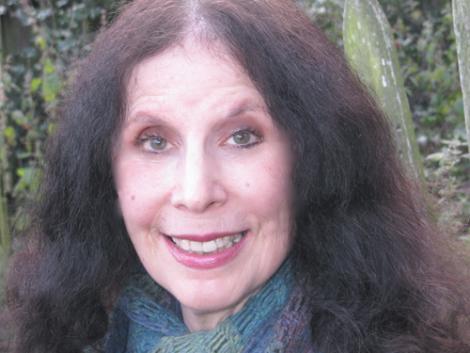The Psychic View – Thinking Makes It So?
Thu, 02/27/2014
By Marjorie Young
I’ve adored Shakespeare since childhood. His genius pervades not only western culture, but every corner of the world. Even those never having seen his plays readily paraphrase him, though sometimes unknowingly. The examples are endless: ‘To be or not to be’…‘The course of true love never did run smooth’…‘It is a wise father that knows his own child’…‘What’s in a name?’…‘To thine own self be true.’
But there is one quotation from ‘Hamlet’ that particularly fascinates me: ‘There is nothing either good or bad but thinking makes it so.’ Those Zen-like words are endlessly provocative. They are especially noteworthy coming from the Prince of Denmark. Hamlet, mourning his recently deceased father and king, learns from his ghostly visitation that his demise was no accident; indeed the king’s brother, Claudius, murdered him, seized the crown, and, to add insult to injury, married the widowed queen hardly a month later. His father’s spirit commands Hamlet to take revenge by assassinating his uncle. The young prince must also weigh the prospect that this ‘apparition’ may not be his ‘father’ at all, but instead a demon from hell, luring him into an unjust murder…thus dooming his soul.
Yet, in the midst of this catastrophic dilemma, Hamlet dares make the observation that only ‘thinking’ determines what is ‘good or bad’…that ‘truth’ is an abstraction. If Hamlet cannot define fratricide, high treason, and even ‘incest’ (as marriage with a brother’s widow was considered to be) as ‘reprehensible’ then what on earth could be considered bad!?
Certainly, history is replete with dark examples to ponder. Nazis thought annihilating the Jews was a perfectly rational idea. Pious Southerners accepted slavery as good economics and ‘God’s will.’ Some equally pious Muslims carry out ‘honor killings’ of female relatives daring to defy cultural norms. And one person’s ‘terrorist’ is always another’s ‘freedom fighter.’
In our daily lives, we are often reassured that difficulties may prove to be ‘blessings in disguise.’ Losing one’s job may evolve into an exciting change of career. Divorce may lead to eventually finding true love. A health crisis may help us treasure our loved ones. A recurrent theme in my fantasy/adventure series, ‘The Boy with Golden Eyes,’ posits that it is impossible to comprehend what occurs in the present; for we lack true perspective by which to judge it. And that ‘reality’ is always a very flexible thing.
A disquieting masterpiece, the Japanese film ‘Rashomon,’ presupposes that ‘truth’ does not exist at all…rather it is simply a ‘construct’ of the individual. Each participant or witness to the crime depicted believes their version is the ‘real’ one. Perhaps Hamlet’s infamous inability to take timely action lies in his faculty for examining his own conundrum from all sides at once.
In all events, Shakespeare’s words, as is so often the case, ring true. From the most benign to the most horrific, we alone measure the ‘rightness’ or ‘wrongness’ of all things. Conclusions will vary wildly. But we ultimately claim responsibility to formulate our own ethics and realities, and to live by them. And ‘rightly’ or ‘wrongly,’ we do.
Marjorie is available for readings at the Ballard Sunday Market, her Ballard home, or by phone. Please e-mail her at: ballardpsychic@gmail.com
See her fantasy/adventure series website: www.theboywithgoldeneyes.com


